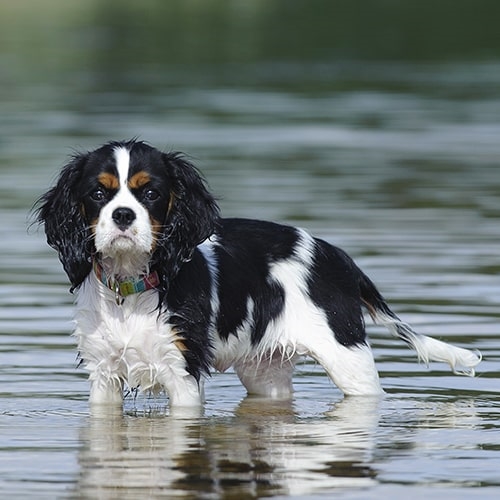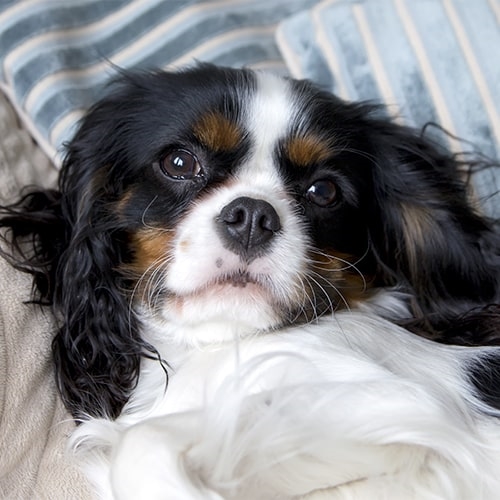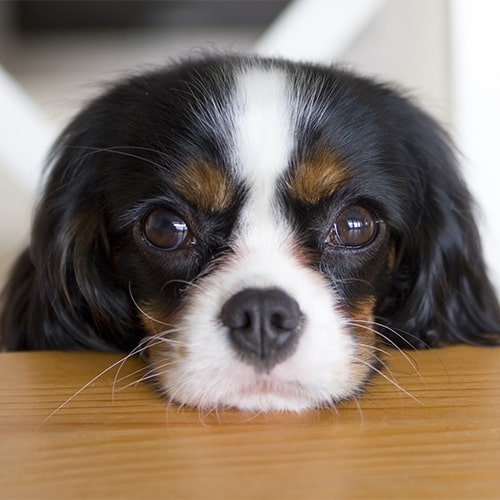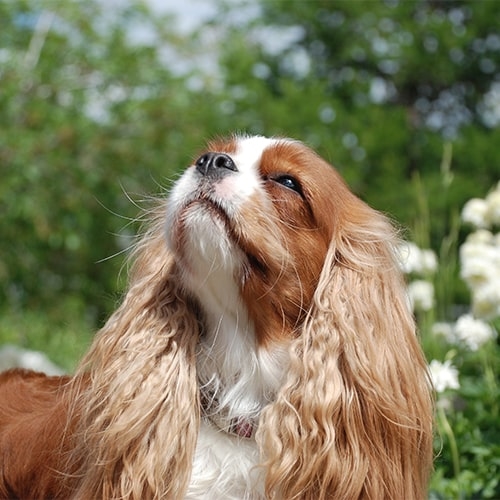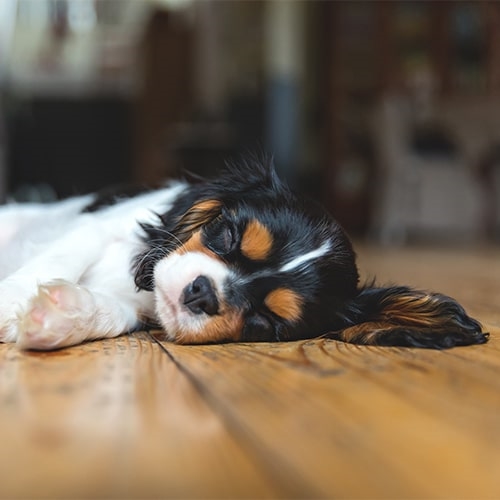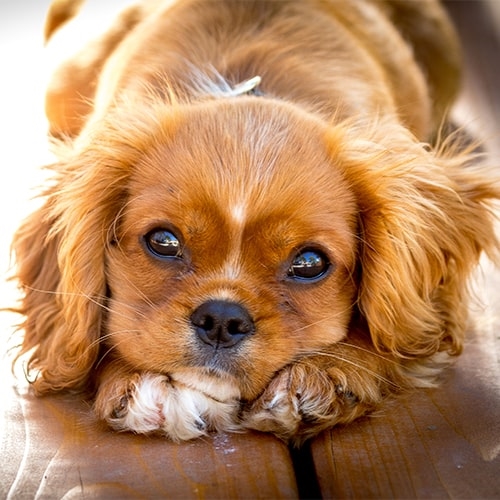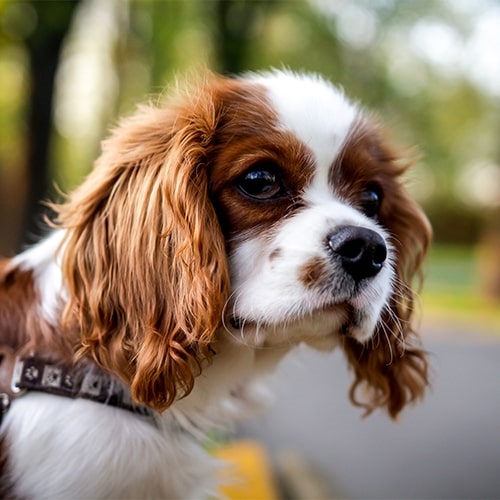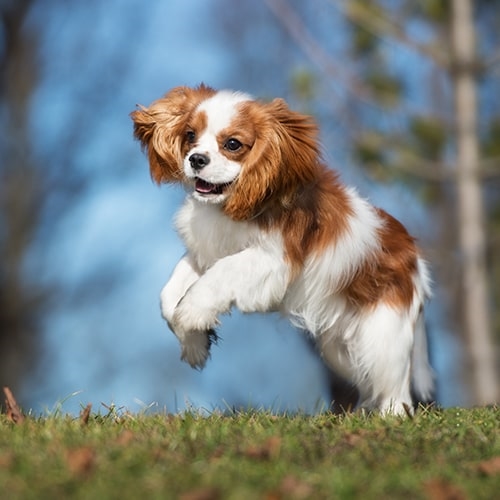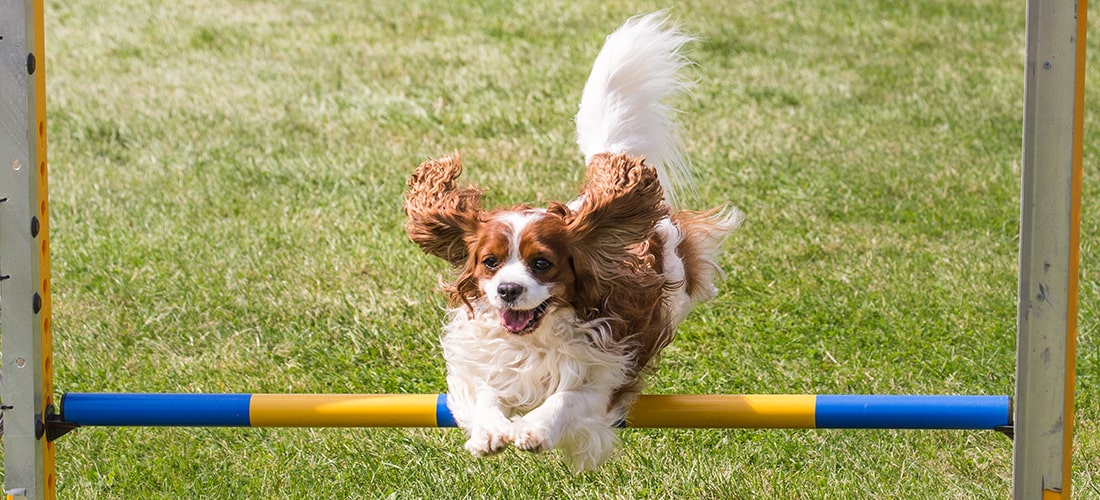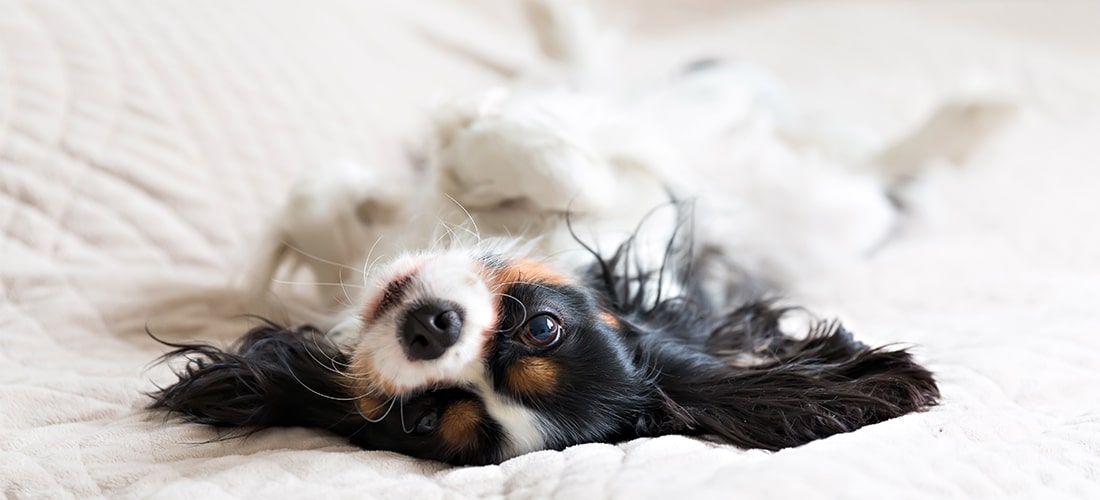Cavalier King Charles Spaniels are popular family dogs due to their small size and love of people. They were originally bred as companion dogs and so enjoy the company of their families as much as possible.
Cavaliers are kind, gentle and loyal dogs which is why they are so popular, but will need constant company as they get very upset at being left alone. They’re very adaptable and are happy with city or country living as long as they get plenty of exercise and mental stimulation.
Common health problems in Cavalier King Charles Spaniels
Cavalier King Charles Spaniels are incredibly sweet-natured dogs but unfortunately, like many purebred dogs, they are prone to certain health issues associated with their breed. There is currently testing and screening for some of the problems Cavalier King Charles Spaniels can have.
If you’re thinking of buying a Cavalier puppy, we’d recommend getting one from a Kennel Club Assured Breeder, as they meet extra requirements including health screening. Parents having the relevant screening reduces the chances of your puppy being affected by these upsetting conditions. We’d also recommend discussing the medical history of your potential puppy’s parents and grandparents, and think very carefully before taking on a dog with any of the health conditions listed above in the family line.
Some of the health conditions Cavalier King Charles Spaniels can develop include:
- Heart conditions (most often caused by mitral valve disease) – this is a big problem for this breed. It is where the heart’s mitral valve weakens and doesn’t work as effectively, this is often first noticed as a heart murmur. There is a Kennel Club scheme for this.
- Eye problems – this includes inherited problems such as cataracts. There is currently KC testing available for inherited eye conditions.
- Curly Coat/Dry Eye (CC/DE) – a condition that affects skin, coat, nails and eyes and can cause a severe form of dry eye syndrome.
- Luxating patellas – where the kneecaps slip temporarily out of place.
- Ear problems – Cavalier King Charles Spaniels can be prone to ear problems. We’d recommend checking them regularly.
- Bad teeth – this is a common problem in all breeds, but potentially more so in Cavaliers as they have a shorter muzzle.
- Chiari malformation and Syringomyelia (CM/SM) – a very painful condition where fluid-filled areas develop within the spinal cord near the brain. There is currently a BVA/KC scheme for this.
- Episodic Falling (EF) – this seems to be a condition unique to Cavalier King Charles Spaniels. Although often described as a ‘fit’ it’s actually caused by stiffening of the muscles leaving the body rigid. Often this has been reported to happen when the cavalier has been exercising, excited or stressed!
If you want to minimise the risk of your dog getting problems due to exaggerated features, you can read our advice on choosing a pedigree dog.
Caring for your Cavalier King Charles Spaniel
Cavaliers are great little dogs that suit family environments. They’re known to be good around children because they’re so keen to please their owners and love the company of people.
Cavaliers are a playful breed and will love spending time with their owners playing in the house or garden. As spaniels, they do have some prey drive so will enjoy hunting and chasing games especially. Like all dogs, Cavaliers prefer company and don’t cope very well when left on their own.
Cavalier King Charles Spaniels and barking
As with any dog, Cavaliers are likely to make noise and it’s down to the individual dog how much they bark or vocalise. Cavaliers are known to be fairly easy-going dogs by nature and most owners will agree that they don’t tend to bark excessively. They usually bark if they’re excited or if someone new is at the door. If you’re having problems with excessive noise or barking, we recommend seeking the advice of an accredited behaviourist.
Training and socialisation
Cavaliers are incredibly eager to please, which makes them fairly easy to train. We would recommend starting positive, reward-based training from a young age to prevent your Cavalier picking up any bad habits and remember to be consistent with their training. Given the right guidance, your Cavalier can grow to be an obedient, confident dog.
Remember to socialise your Cavalier as a puppy with lots of other dogs, different people and types of experiences to help them gain confidence. Cavaliers can develop separation anxiety if their owners leave them at all, so you’ll need to train them to be left alone if you need to and remember to never leave your dog alone for more than four hours.
Exercise

